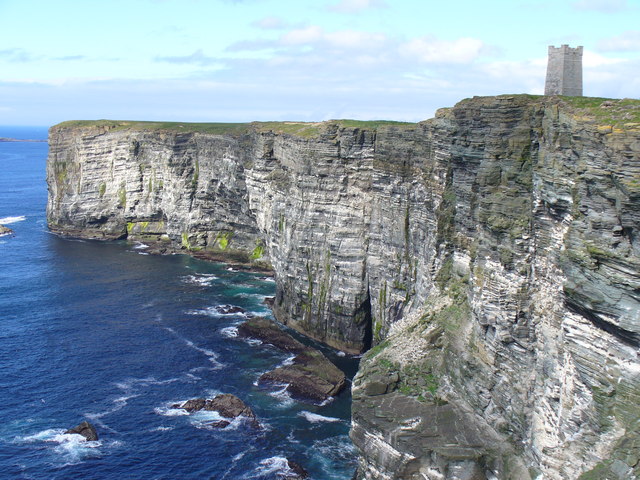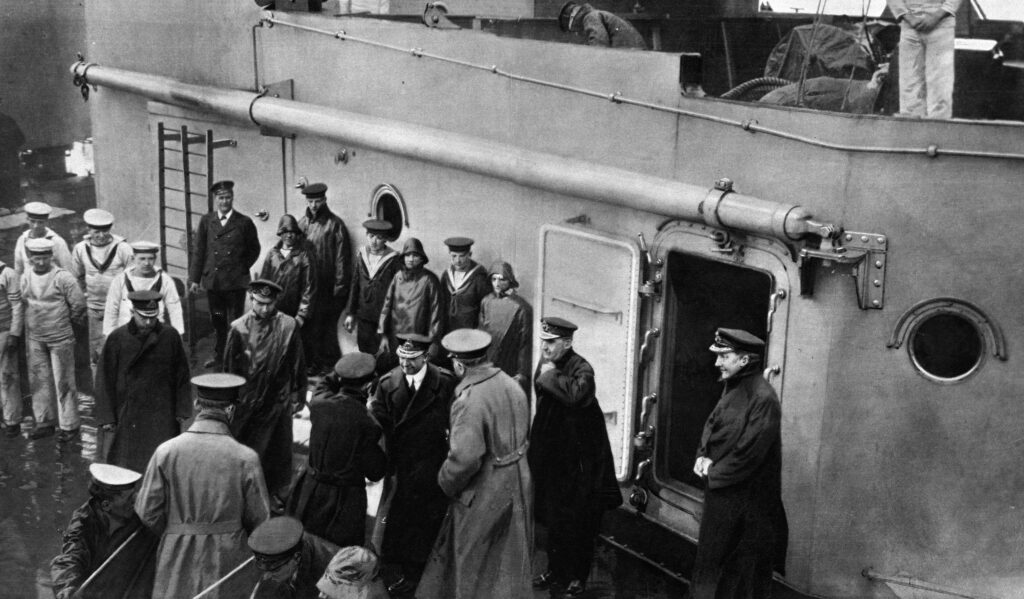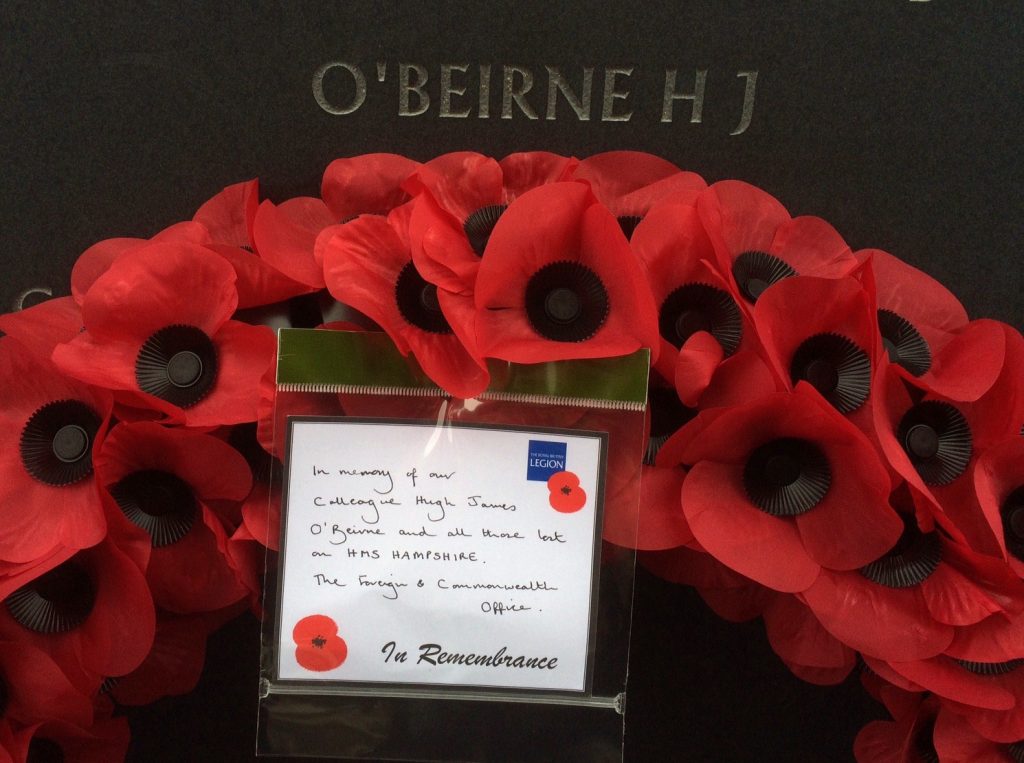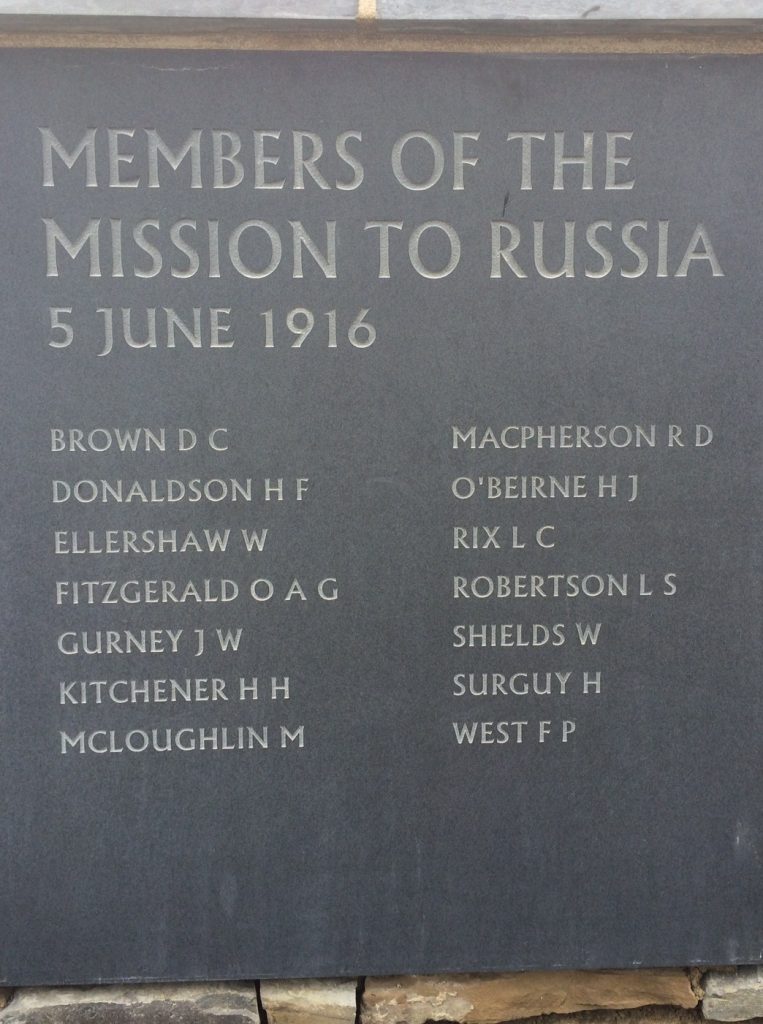The death of Lord Kitchener, who drowned when HMS Hampshire sank just off the Orkney’s north-west coast on 5 June 1916, came as a profound shock to the nation. The Secretary of State for War was the public face of the British war effort against Germany (literally through his famous poster – ‘Your Country Needs You’). In 1926 a memorial tower was erected by the people of Orkney at Marwick Head, overlooking the site of the tragedy.


A promising career
Hugh O’Beirne of Jamestown, Drumsna, County Leitrim, was educated at Beaumont and Balliol College, Oxford and entered the Diplomatic Service in 1892. His first posting was in St. Petersburg, where he learnt to speak Russian, and after service at Washington, Constantinople and Paris he returned to the Embassy as Counsellor in July 1906. He remained in Russia for the next nine years and played a valuable role in the development of UK-Russian relations, symbolised by the signing of the Anglo-Russian entente of 1907. He was promoted to the rank of Minister in August 1913.
In July 1915 he was sent to Sofia as Chargé de Affaires to lead last-ditch negotiations to persuade the Bulgarian government to enter the war on the side of the Allies. By October it was clear his efforts were in vain. O’Beirne returned to London and worked at the Foreign Office where he was for a time in charge of the War Department. Aged just 49 when he met his untimely death O’Beirne was described as one of the ablest British diplomats of his generation with a great future.
Mission to Russia
Kitchener’s mission was aimed at bolstering the Russian war effort and ensuring better coordination between the western and eastern fronts. His party consisted of advisers from the Ministry of Munitions and the military, along with his aide de camp and a number of servants.
The Russians had expressed the hope that the Chancellor of the Exchequer might accompany Kitchener as there were many financial questions that required discussion. As the Chancellor was unable to make the trip it was thought advisable that O’Beirne should go. His long experience of working in Russia and his language skills made him an ideal choice. He was in full possession of the views of the Chancellor and able to explain points of detail to the Russian Minister of Finance.
Following the tragedy the British ambassador in St Petersburg, Sir George Buchanan, reported: ‘Mr O’Beirne’s death and sudden closing of so promising a career is . . . deeply deplored by his countless friends in the Russian capital’. A requiem mass was held for him at the French church in the presence of Grand Duke Nicholas Mikhailovich of Russia.
A fateful end
HMS Hampshire was an armoured cruiser of the Devonshire class built by Armstrong Whitworth on the River Tyne and completed in 1905. She served in China and the Far East in 1914, on Northern patrols in 1915, and also at the Battle of Jutland (31 May 1916). She was detached from the Grand Fleet for the special duty of conveying Kitchener and his staff to Russia.
O’Beirne missed the train carrying Kitchener’s party north but he managed to catch a special service which meant he still arrived in time to make the trip. The picture below shows O’Beirne shaking hands with Admiral Jellicoe – commander of the Grand Fleet - who had come to bid farewell to Kitchener (third figure from right) as he boarded Hampshire.

The ship left Scapa Flow on 5 June 1916 bound for Archangel. A gale forced the destroyer escort to return to Scapa but the Hampshire carried on alone. She was struck by a mine recently laid by the German submarine U-75 about 1.5 miles offshore between the Brough of Birsay and Marwick Head. The ship took less than twenty minutes to sink.
A century on, FCO Protocol Director - Julian Evans - and members of his team laid a wreath at the Kitchener Memorial to remember O’Beirne’s death in the line of duty. As a civilian his name was unrecorded on any war memorial but it now has a permanent presence, engraved on the commemorative wall, along with all those who lost their lives in the sinking.

